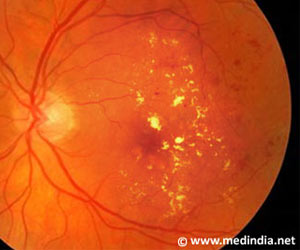Religious African Americans have improved blood pressure, cholesterol and other metrics that affect cardiovascular health.
- Cardiovascular health and mortality rates from cardiovascular disease are higher in African Americans than in White adults
- But African American adults with profound religious and spiritual beliefs have a 15% higher likelihood of achieving an ‘intermediate’ or ‘ideal’ cardiovascular health score
- This finding could help improve health outcomes in the African American community
Link Between Religious Beliefs, Spirituality and Heart Health
“I was slightly surprised by the findings that multiple dimensions of religiosity and spirituality were associated with improved cardiovascular health across multiple health behaviors that are extremely challenging to change, such as diet, physical activity and smoking. Our findings highlight the substantial role that culturally tailored health promotion initiatives and recommendations for lifestyle change may play in advancing health equity. The cultural relevance of interventions may increase their likelihood of influencing cardiovascular health and the sustainability and maintenance of healthy lifestyle changes,” said lead study author Dr LaPrincess C. Brewer, a preventive cardiologist and assistant professor of medicine at Mayo Clinic in Rochester, Minnesota.According to the release, cardiovascular health among African Americans is worse than non-Hispanic White people. Also, mortality rates from cardiovascular disease are higher in African Americans than in White adults.
The study examined survey responses and health screenings from 2,967 African Americans aged 21 to 84 who resided in Jackson, Mississippi. This tri-county area is renowned for the profound religious views of its residents. Participants in the analysis with a history of heart disease were not part of the study.
Researchers divided the participants into groups based on their self-reported religious practices and health characteristics. They then calculated the likelihood that each group would succeed in preventing heart disease.
Why do Religious Practices and Beliefs Impact Cardiovascular Health Positively?
According to a study, religious practices and beliefs are associated with better measures of cardiovascular health. “One hypothesis that could explain these observations is that both the practice of religion and the behaviors that are associated with better cardiovascular health such as adherence to physician recommendations for behavior change, not smoking, and not drinking excessively share a common origin or personality characteristic. Observing a religion requires discipline, conscientiousness and a willingness to follow the guidance of a leader. These traits may also lead people to engage in better health practices under the guidance of their healthcare providers,” said Epidemiologist Mercedes R. Carnethon, vice chair of preventive medicine at Northwestern University Feinberg School of Medicine in Chicago.Jonathan Butler, research faculty at the Department of Family and Community Medicine at the University of California, San Francisco, and associate minister at the Third Baptist Church of San Francisco, said, “The study makes the case to reinforce religion and spirituality in faith-oriented and culturally relevant lifestyle interventions.”
Professor of medicine at the Morehouse School of Medicine in Atlanta, Dr Elizabeth Ofili, called attention to possible biases in the cross-sectional study's reporting.
“Future studies should use self-monitoring/digital devices to address the difficulties of bias in reporting health behaviors,” Ofili said.
Source-Medindia
















